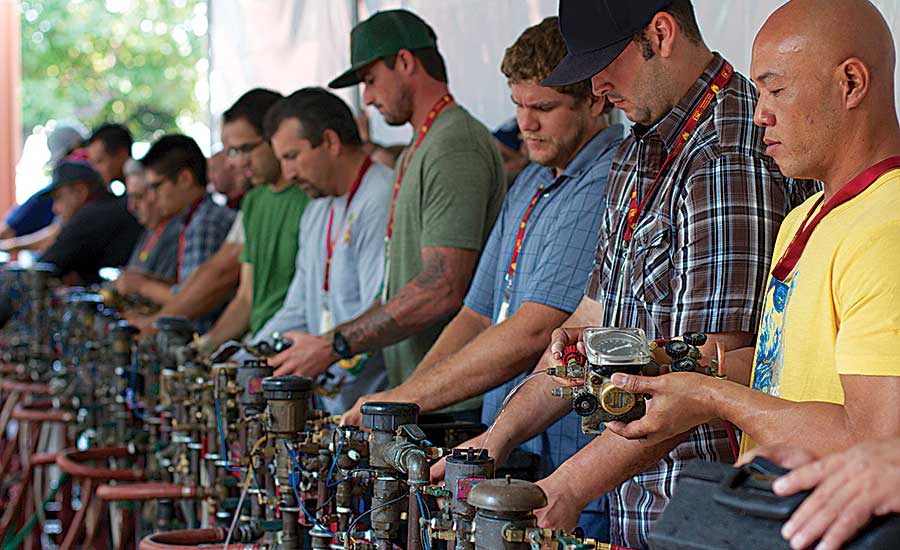Backflow prevention assemblies are installed to make sure a backflow incident does not contaminate our potable water supply.
Because this is a health safety device, enforcement of an ongoing evaluation process is critical to assure it is working when and if a backflow incident occurs. This annual evaluation is called field testing. The field test is a process to evaluate the working condition of a backflow prevention assembly installed in the plumbing system. Like any mechanical piece of equipment, the assembly’s performance can deteriorate and eventually require maintenance. The evaluation must be done by somebody certified to perform the field-test procedure. This presents two variables: the field test itself and the term certification.
The field test is a diagnostic analysis of the backflow prevention assembly in its installed location. The water must be shut off to perform this field test. This alone can cause issues with some facilities that require continual water supply such as hospitals. The test procedure establishes a protocol of generating accurate data consisting of several pressure-differential numbers for each of the various components of the assembly.
The resulting data is evaluated by the tester who determines if the assembly either passes or fails. Passing means it is working to the standards as established in the test procedures. A failure means the assembly is performing below an accepted minimum standard. This failure does not necessarily mean the assembly cannot prevent backflow, it simply means it is operating below an accepted minimum level and a repair should be conducted to restore the assembly to a better working condition.
The instrument used to perform this field test is called a test kit. The accuracy of this kit also is important for generating accurate field-test data. The tester should have his/her test kit evaluated for accuracy at least once a year to make sure it is operating within factory tolerances and providing accurate data.
The person performing this field test is called a certified tester. This tester must meet the requirements of the certification program he/she applies for. Certification is a document issued to an individual who has successfully completed an examination and evaluation of their ability, knowledge and skill to perform a specified function as defined by the certification process.
This certification has a time limit. Most are good for three years when a recertification exam must be successfully passed to maintain the certification. It is important to distinguish a certification from a license. Certification is granted to a person. A business license such as those issued to plumbing, fire or irrigation contractors allows a person or company to perform the licensed function. The function can be the ability to act as a plumber for hire. Many people confuse a business license and a certification. A tester must be individually certified to perform the field test and may need an additional license to charge money for this job in some administrative authorities’ jurisdiction.
The field test of a backflow prevention assembly helps to ensure that once installed, an assembly will continue to do its job of protecting potable water from contamination. Having a well-trained group of certified testers assures the field test is properly conducted, which helps maintain safe drinking water.




